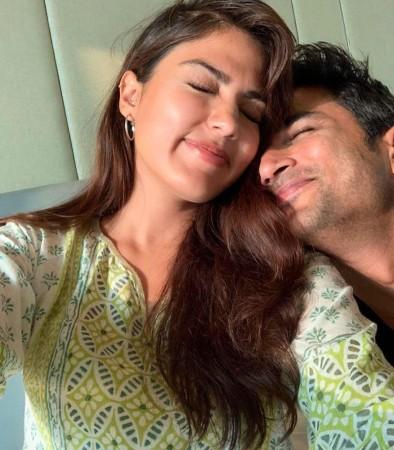Sushant Singh Rajput's therapist and psychiatrist Susan Walker is facing backlash for allegedly breaking the code of confidentiality and publicly making comments about his mental conditions after his death. In a prerecorded interview with journalist Barkha Dutta, Walker revealed that Sushant Singh Rajput was suffering from bipolar disorder and was under severe depression.
In the interview, she also said that during the course of the treatment from November 2019 to June 2020, his girlfriend Rhea Chakraborty took good care of him and was his strongest support.

The reason she specified for her coming out and speaking on the matter, which some argue breaches the code of confidentiality, was to clear misinformation and end the stigma around mental illness.
She said she was dismayed to see conspiracy theories related to Sushant Singh Rajput and Rhea Chakraborty circulating on social media.
Debate on code of confidentiality rages
As the debate on code of confidentiality rages on and the confusion if Susan Walker really breached the confidentiality code, here is what consultant psychiatrist Soumitra Pathare has to say on the matter. Dr Pathare is also the Director at the Centre for Mental Health Law and Policy at the Indian Law Society.
Does confidentiality apply to counsellors/psychologists?
Yes
Does confidentiality apply after death?
Dr Pathare says that while there is no recorded precedent on this matter in India, however, he says, according to the world's leading protection organisation for healthcare professionals Medical Protection Society Limited ("MPS"), the code of confidentiality applies after death as well.
But, as in any medical case, there are exceptions when the doctor or the caregiver can make the disclosure.
What are the exceptions:
As per MPS, these are the circumstances, in which disclosure is either permissible or mandatory.
- To meet the terms of a Statutory provision (e.g. notification of a communicable disease)
- To comply with a court order
- In the public interest (which includes, but is not limited to, "situations where the patient or other persons would be prone to harm as a result of risk-related contact".)
- With the patient's consent.
- With the written consent of a parent or guardian of a minor under the age of 12 years
- With the written consent of the next of kin or the executor of the estate of a deceased patient.
Can "public interest" be the grounds for breaking confidentiality?
Yes. Even the Mental Healthcare Act makes this an exception to break confidentiality, he says. However, what is public interest is open to interpretation.
What about the clause of protecting others from harm?
Yes, the law allows breaking confidentiality to protect others from harm.
Dr Pathare explains that in the past this clause was invoked when the third person faced any danger from the patient but in the current case the patient concerned (Sushant Singh Rajput) is dead but his girlfriend (Rhea Chakraborty) is being subjected to "mob lynching" on social media.
However, he is not sure if this could be a ground for breaking confidentiality and says the law of the land can decide on the matter.
Can legal action be taken against the foreign counsellor under India's Mental Healthcare Act?
It would depend if the counsellor is a registered psychiatrist in India, which is not yet known.


!['Had denied Housefull franchise as they wanted me to wear a bikini': Tia Bajpai on turning down bold scripts [Exclusive] 'Had denied Housefull franchise as they wanted me to wear a bikini': Tia Bajpai on turning down bold scripts [Exclusive]](https://data1.ibtimes.co.in/en/full/806605/had-denied-housefull-franchise-they-wanted-me-wear-bikini-tia-bajpai-turning-down-bold.png?w=220&h=135&l=50&t=40)


!['Had denied Housefull franchise as they wanted me to wear a bikini': Tia Bajpai on turning down bold scripts [Exclusive]](https://data1.ibtimes.co.in/en/full/806605/had-denied-housefull-franchise-they-wanted-me-wear-bikini-tia-bajpai-turning-down-bold.png?w=220&h=135)


![Nayanthara and Dhanush ignore each other as they attend wedding amid feud over Nayanthara's Netflix documentary row [Watch]](https://data1.ibtimes.co.in/en/full/806599/nayanthara-dhanush-ignore-each-other-they-attend-wedding-amid-feud-over-nayantharas-netflix.jpg?w=220&h=135)